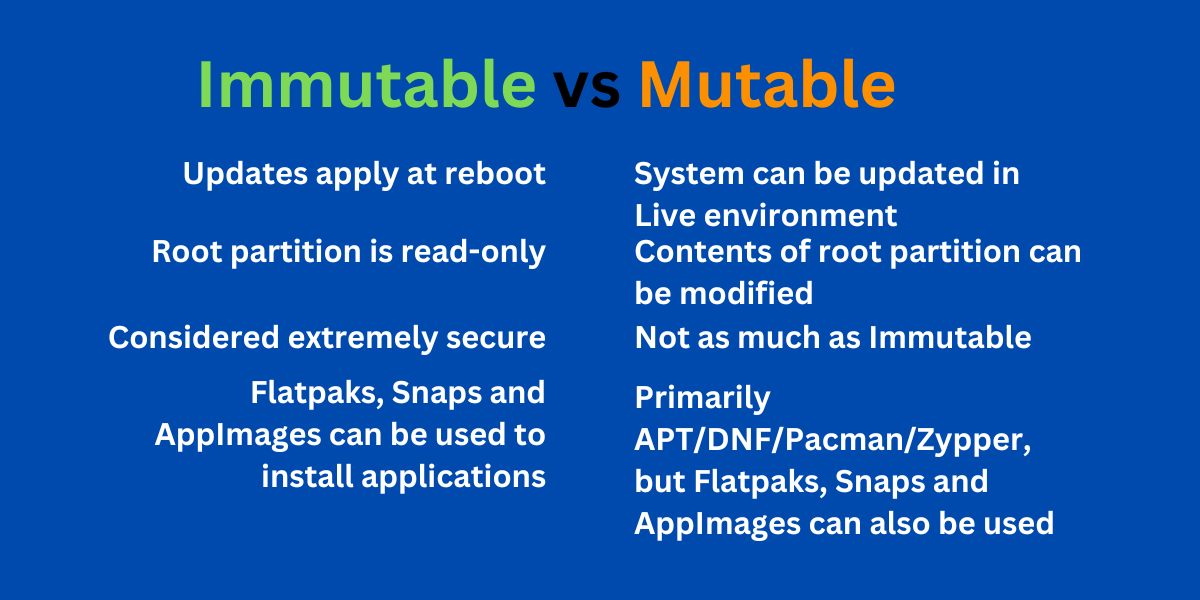turn off. immutable
Linux
From Wikipedia, the free encyclopedia
Linux is a family of open source Unix-like operating systems based on the Linux kernel, an operating system kernel first released on September 17, 1991 by Linus Torvalds. Linux is typically packaged in a Linux distribution (or distro for short).
Distributions include the Linux kernel and supporting system software and libraries, many of which are provided by the GNU Project. Many Linux distributions use the word "Linux" in their name, but the Free Software Foundation uses the name GNU/Linux to emphasize the importance of GNU software, causing some controversy.
Rules
- Posts must be relevant to operating systems running the Linux kernel. GNU/Linux or otherwise.
- No misinformation
- No NSFW content
- No hate speech, bigotry, etc
Related Communities
Community icon by Alpár-Etele Méder, licensed under CC BY 3.0
Then you have NixOS, which is declarative, and fairly immutable.
You don't have to reboot to make changes, but you can't just run unlinked binaries either.
You can't do things like edit your hosts table or modify the FS for cron jobs. The application store is unwritable, but you can sync new apps into it .
You have to make changes to the config file and run a rebuild as root.
just for clarity: you can modify stuff like hosts or cron jobs but it'd get overwritten iirc? you can also make the change in the config and have it persist (reproducibility being the main point, not disallowing you to edit your files)
